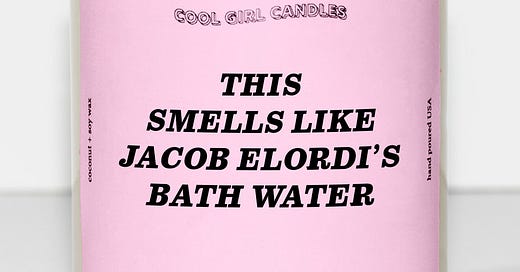The Scene in Saltburn No One Talks About
TL;DR It’s not about class warfare it’s about class complicity
You likely know the scene in Saltburn that is so over-discussed it has inspired a candle, but if you don’t, here’s Wikipedia’s hilarious summary: “One night, [Oliver] watches Felix masturbating in a bathtub and lustfully drinks the semen-laced bathwater.”
Indeed.
What surprises me about the Saltburn discourse is how doggedly critics are fixated on the sl…
Keep reading with a 7-day free trial
Subscribe to Bimbo Summit: A Pop Culture Study to keep reading this post and get 7 days of free access to the full post archives.





